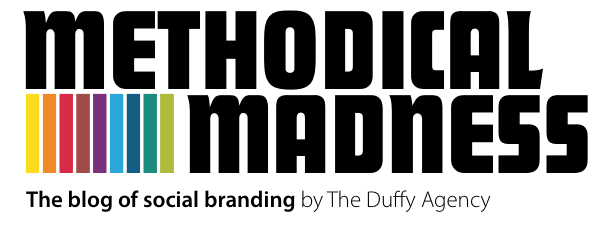Why customers hating your brand could be a good thing
 Tuesday, May 24, 2011 at 9:54AM
Tuesday, May 24, 2011 at 9:54AM In today's social media world, brands are focusing on connecting with and engaging their customers. Customers are asked to become fans, to "like" Facebook brand pages, and to follow brands on Twitter. However, while there is definite merit in getting customers to engage with you through these methods, there is a huge untapped social media market of potential brand ambassadors out there that many brands may have overlooked: customers who don't like your brand.

I quick search on Facebook for "I hate <insert brand name here>" or "<brand name> sucks!" produces dozens of groups dedicated to trashing some brand. While it may seem counterintuitive to try to market to people who are already predisposed to dislike your brand, I believe there is an opportunity among these online diatribes.
We've all heard that consumers are more apt to relate bad experiences about a brand more than they do about good experiences. In social media, those that create "fan" pages for brands (e.g., "I love <insert brand>"), are seen as valuable resources. Why? Because they went to the trouble of expressing their brand loyalty by creating a fan page, or sending a tweet. However, if you think about it, just as much effort went into expressing disappointment in a brand. Just look at what Dave Carroll did when Untied Airlines damaged his guitar during shipping. And it is this effort that shows me that these types of consumers could be persuaded to change their opinion.
Why?
I would argue that the reason many people create these brand-bashing pages, or express their views in this way, is because they were disappointed in their brand experience. Which means that they expected a different experience. They expected to like the brand, maybe even wanted to like the brand, and something happened to turn them off. In fact, I think that Facebook should create a "Dislike" button for content, and provide brands with metrics on this, including the ability to message people who have disliked a brand.
Of course, there are some people you will never win over. Vegans will never start eating at McDonalds. However, for those that create a page because of a bad experience, this is a prime opportunity for engagement from a brand. Perhaps there is something you can do to rectify the situation that spawned the bad sentiments. Or perhaps it's just a matter of clarifying a misconception. Whatever the reason, a quick post or tweet can do a world of good winning over people or at least showing that you are listening.
Many brands, for example, have already deployed Twitter accounts as an extension of their customer service departments. They scan the Twitterverse for hash tags and comments, both good and bad. This is a fantastic strategy and one that we advocate for our clients. In fact, getting a response from a brand you tweeted about is a great way to form a lasting relationship and show that the brand truly cares about its customers.
Of course, concentrating on consumers who dislike your brand should not be your only strategy. However, it should be part of your overall social marketing strategy. The important thing here is that anytime a consumer is publicly talking about your brand—either good or bad comments—you should be aware of it, and when warranted, you should be engaging with those people. And if a consumer goes to the trouble of creating content that actually bashes your brand, look at it as an opportunity not a failure.
Kevin Duffy is the Creative Director for The Duffy Agency's Boston office.

Reader Comments